Number Our Days is a french film of genre Documentary released in USA on 1 january 1976
Number Our Days (1976)
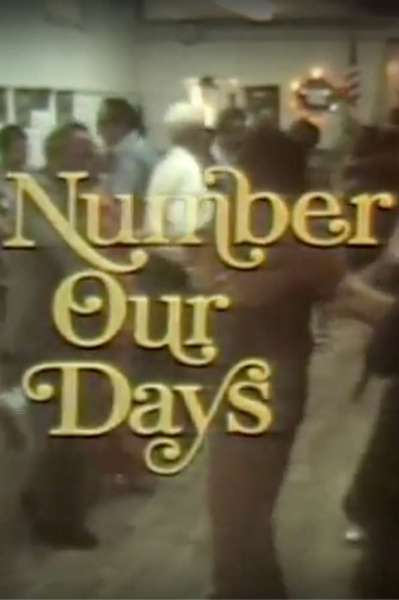
If you like this film, let us know!
Released in USA 1 january 1976
Length 28minutes
OriginFrance
Genres Documentary
Themes Films about religion, Documentaire sur une personnalité, Documentary films about religion, Films about Jews and Judaism
Rating72%










Number Our Days is a 1976 American short documentary film about a community of elderly Jews living in Venice, California. Directed by Lynne Littman, it won an Academy Award in 1977 for Documentary Short Subject.
^ "New York Times: Number Our Days". NY Times. Retrieved 2008-05-27.
Synopsis
Le film évoque une communauté de juifs âgés vivant à Venice (Los Angeles).Comments
Leave comment :
Suggestions of similar film to Number Our Days
There are 8971 with the same cinematographic genres, 5529 films with the same themes (including 156 films with the same 4 themes than Number Our Days), to have finally 70 suggestions of similar films.If you liked Number Our Days, you will probably like those similar films :

500 Dunam on the Moon (2002)
Origin USA
Genres Documentary
Themes Films set in Africa, Films about religion, Documentary films about law, Documentary films about war, Documentary films about historical events, Documentaire sur une personnalité, Documentary films about politics, Documentary films about religion, Political films, Films about Jews and Judaism
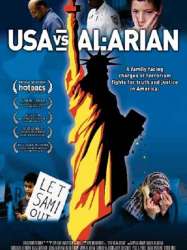
USA vs. Al-Arian (2007)
, 1h42Genres Documentary
Themes Films set in Africa, Films about religion, Films about terrorism, Documentary films about law, Documentary films about war, Documentary films about historical events, Documentaire sur une personnalité, Documentary films about politics, Documentary films about religion, Documentary films about terrorism, Political films, Films about Jews and Judaism
Rating70%





 , 1h
, 1hDirected by Andrew Goldberg
Origin USA
Genres Documentary
Themes Films set in Africa, Films about racism, Films about religion, Documentary films about racism, Documentary films about law, Documentary films about war, Documentary films about historical events, Documentaire sur une personnalité, Documentary films about politics, Documentary films about religion, Political films, Films about Jews and Judaism
Rating67%






The War on Britain's Jews? (2007)
, 50minutesGenres Documentary
Themes Films about racism, Films about religion, Documentary films about racism, Documentary films about law, Documentaire sur une personnalité, Documentary films about religion, Films about Jews and Judaism
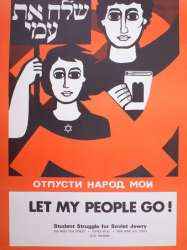 , 1h
, 1hDirected by Marshall Flaum
Origin USA
Genres Documentary
Themes Films about immigration, Films about religion, Documentary films about law, Documentaire sur une personnalité, Documentary films about religion, Films about Jews and Judaism
Actors Richard Basehart
Rating68%





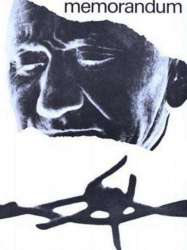
Memorandum (1967)
, 58minutesDirected by Donald Brittain
Origin Canada
Genres Documentary
Themes Films about racism, Films about religion, Documentary films about racism, Documentary films about law, Documentary films about war, Documentary films about historical events, Documentaire sur une personnalité, Documentary films about religion, Political films, Films about Jews and Judaism, Documentary films about World War II
Rating75%





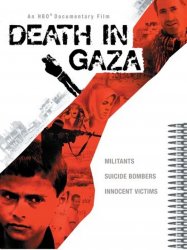
Death in Gaza (2004)
, 1h20Directed by James Miller
Genres Documentary
Themes Films set in Africa, Films about religion, Documentary films about law, Documentary films about war, Documentary films about historical events, Documentaire sur une personnalité, Documentary films about politics, Documentary films about religion, Political films, Films about Jews and Judaism
Actors James Miller, Saira Shah
Rating79%





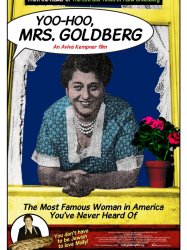
Yoo-Hoo, Mrs. Goldberg (2009)
Directed by Aviva Kempner
Genres Documentary
Themes Films about religion, Documentaire sur une personnalité, Documentary films about religion, Political films, Films about Jews and Judaism
Actors Gertrude Berg, Viola Harris, Norman Lear
Rating73%






Arna's Children (2006)
Directed by Danniel Danniel, Juliano Mer-Khamis
Genres Documentary
Themes Films set in Africa, Films about religion, Documentary films about law, Documentary films about war, Documentary films about historical events, Documentaire sur une personnalité, Documentary films about politics, Documentary films about religion, Political films, Films about Jews and Judaism
Rating79%





Le documentaire raconte l’histoire de quelques jeunes combattants palestiniens de Jénine, dont certains ont été tués par les forces israéliennes. Enfants, ces jeunes faisaient partie d'une troupe théâtrale fondée par Arna Mer-Khamis, la mère du coréalisateur Juliano Mer Khamis.
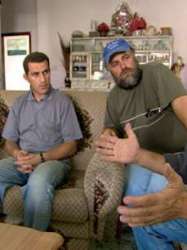
Another Side of Peace (2005)
, 1hGenres Documentary
Themes Films set in Africa, Films about religion, Documentary films about law, Documentary films about war, Documentary films about historical events, Documentaire sur une personnalité, Documentary films about politics, Documentary films about religion, Political films, Films about Jews and Judaism
 Connection
Connection